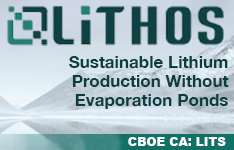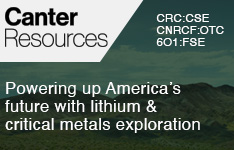The Life Sciences Report: As you and I speak, the global securities markets are very volatile. But we saw the NASDAQ Biotechnology Index (NBI) begin to trend down on July 20. Even with this turmoil in the markets, the NBI is still up more than 25% over the past 12 months, and it is up more than 320% over the last five years. Speaking to biotech only, do you see this pullback as a needed break, or do you see this as the bubble bursting?
Ran Nussbaum: Some biotech companies carry very high valuations right now, but I don't think this is a bubble. I do know that there have been a lot of mergers and acquisitions (M&As), and there have been a lot of initial public offerings (IPOs)—and I believe the IPO window is still open. However, a bubble, by definition, is something that is not connected to real life. For example, it's a bubble when you are not generating data and your shares are climbing. This is not what we are observing now. We've just seen a lot of investors running in to biotech, buying good shares such as Gilead Sciences Inc. (GILD:NASDAQ) and Celgene Corp. (CELG:NASDAQ).
"We believe Arno Therapeutics Inc. is very good story for prostate and breast cancer indications."
This pullback is something that we thought would occur during Q3/15 or Q4/15. We have been saying, since 2008, that when there's blood on the street, buy biotech. This pullback has created a lot of opportunities. Just one example, right in the middle of this market turmoil: On Aug. 24, Exelixis Inc. (EXEL:NASDAQ) announced that the FDA granted breakthrough therapy designation for cabozantinib in renal cell carcinoma, which is the company's lead product candidate. It is just bizarre that then this company's shares would drop. But from an investor's point of view, such anomalies are an opportunity, because you can purchase shares when they fall, even when a company is doing great.
TLSR: What are some of the technologies that will keep biotech alive over the next years?
RN: First, let me say that there was a gap between when we completed mapping the human genome in 2003 and when we began to generate good, validated targets and technologies from that information. The immune checkpoints have changed the entire picture. An antibody against cytotoxic T-lymphocyte-associated antigen 4 (CTLA4) was the first of this group of checkpoint inhibitors to gain FDA approval— Bristol-Myers Squibb Co.'s (BMY:NYSE) anti-CTLA4 antibody Yervoy (ipilimumab) for melanoma. Merck & Co. Inc.'s (MRK:NYSE) anti-PD-1 antibody, Keytruda (pembrolizumab), was the first anti-PD-1 drug to get approved by the FDA, and it was granted accelerated approval.
You're looking now at a quantum leap in technologies, given how many new checkpoints companies have generated in the last five years, and also how chimeric antigen receptors (CARs) and T-cell receptors (TCRs) have changed the picture again. The CRISPR/Cas9 technologies are being developed, and you can edit a genome at any spot now. This is something big. Foundation Medicine Inc. (FMI:NASDAQ) has come up with a good, clear and loud vision about how to treat cancer by mapping the mutations, and there are other companies out there trying to identify the driving mutations of tumors. This is the perfect personal medicine solution that the entire market has waited for.
"Some biotech companies carry very high valuations right now, but I don't think this is a bubble."
As a philosophy, we are not racing to catch trends. Right now we are trying to identify the next technologies to rule the biotech arena, including driving mutations and new ways to target cancer cells. By the way, I think that cancer metabolism will be something big in the next few years. All in all, when we are looking at the biggest goal right now, it's to generate new targets that might be the perfect personal medicine for our generation.
TLSR: Ran, if this stock market turmoil doesn't cause weakness in the economy, the Federal Reserve could hike the Federal funds rate before year-end. I wonder if you believe these technologies, and the catalysts and milestones associated with them, will be able to push through the headwinds of a down-trending market, if that occurs?
RN: There are some good reasons for the Fed to increase interest rates, but if it does that, then the economy will slow down. If the economy is growing, as I think it is, and if Chinese money is coming into the U.S. public markets, I think you will see again that America is actually more solid and more stable. We can see some signs of progress too in Switzerland, Denmark, the United Kingdom, France and Germany. I think the economy is in good shape. That said, I think no biotech company—no Gilead or Kite Pharma (KITE:NASDAQ)—can be stronger than the market forces. If the market goes down, companies will go down as well.
But there are some good things going on with these companies. The thing I like about biotech is if the market is weak, these companies will still be able to come up with good clinical data and outcomes. Ultimately, these companies will climb. It's all about fundamentals. I can't predict the markets, but I think I know the good companies in this arena.
TLSR: I'm asking this question because you own some private equity. In a downturn, I wonder if you would be looking at fewer IPOs and diminished M&A activity. What would you expect if we go into a period of share price consolidation?
RN: That's a fair situation to think about. The first thing is that there will be only cherry picking of IPOs. You will not see every private company going public. The market will try to choose the best of them, and so you will see fewer IPO rounds. You will also see private companies having difficulties raising money.
TLSR: Let's talk about some companies, please.
RN: Sure. We have had a long relationship with Arno Therapeutics Inc. (ARNI:OTC.MKTS). It lost a significant portion of its valuation over the past year, but we didn't sell even one share. We wanted to give Arno a fighting chance with onapristone. We think that on progesterone receptor-positive prostate and breast cancers, the odds are good that onapristone will get some responses in refractory cancer patients. Of course, we want to see that shown in a broad-based trial.
"The recent pullback in the markets has created a lot of opportunities."
The management team is very strong. I'm a true believer in the chairman, Dr. Arie Belldegrun, who is a serial entrepreneur. He sold Cougar Biotechnology Inc. to Johnson & Johnson (JNJ:NYSE). He sold Agensys Inc. to Astellas Pharma Inc. (ALPMF:OTCPK; 4503:TYO), and he's the executive chairman, CEO and founder of Kite Pharma. He is also a urologic oncologist and professor of urology at the UCLA Institute of Urologic Oncology at the David Geffen School of Medicine. Arno's CEO, Dr. Alex Zukiwski, is also very strong.
TLSR: I realize this is an early-stage, Phase 1 company, which would be consistent with a low valuation, but why is Arno's market cap in the low single digits?
RN: I think that the financial structure is not the perfect scenario for Arno. Bear in mind that we have good investors. It's not just Arie Belldegrun, but also David Bonderman, chairman of TPG Capital. We also have Dr. Phillip Frost, CEO and chairman of OPKO Health Inc. (OPK:NYSE); Frost also served as Teva Pharmaceutical Industries Ltd.'s (TEVA:NYSE) chairman of the board. Arno has many more sophisticated investors, but most of them are invested in convertible loans and not equity holders.
I think that investors are trading Arno shares at very low volume while they wait to see if the company will raise more money, or generate good data and then raise money. This company has been low profile, and is very much under the radar. It is not pitching its story before coming up with good results. I really believe that Arno will generate good data before raising more money and will win this thing.
TLSR: Onapristone is a progesterone receptor antagonist. The progesterone receptor is constitutively overactivated; it's just always on. Medivation Inc. (MDVN:NASDAQ) has an approved drug called Xtandi (enzalutamide) that acts on three different steps of androgen receptor signaling, and the androgen receptor is also constitutively overactivated. Xtandi is an extremely successful drug. Do you think that, because Arno is antagonizing an always-on receptor, the company could really be on to something?
RN: Medivation is a great company, now with a $7.5B market cap. Yes, the mode of action is similar, but separate. You have pretty much summarized our theory, but Arno needs to come up with good data and good outcome stories. We feel Arno should go after Xtandi-refractory prostate cancer patients, but right now Medivation obviously has proof of concept, and Arno does not. We think there is a good scientific rationale that onapristone will work on prostate cancer patients, and breast cancer patients as well. We don't want to say Arno will be Medivation and will give you a billion-dollar market cap. We want to do the right thing. We want to see good data first.
By the way, onapristone was licensed from Bayer AG (BAYRY:OTCMKTS; BAYN:XETRA), but it was not for oncology indications. It showed some toxicity in the original indication, but now we have a good candidate. Arno came up with its own formulation for oncology. We believe we have a very good story for prostate and breast cancer indications.
TLSR: Could we go to the next name, please?
RN: Array BioPharma Inc. (ARRY:NASDAQ) has multiple shots on goal. It has MEK (a receptor tyrosine kinase) inhibitors and a great relationship and collaboration with Genentech (a unit of Roche Holding AG [RHHBY:OTCQX]). It has at least 10 different collaborations with big pharmas.
"The biggest goal right now is to generate new targets that might be the perfect personal medicine for our generation."
Array is an engine of best-in-class MEK inhibitors, and from my point of view, this will be very valuable to either AstraZeneca Plc (AZN:NYSE) or Pfizer Inc. (PFE:NYSE). Someone is going to buy this prolific drug-producing machine. It's unbelievable that it is under the radar and so undervalued. Right now everybody is going after immuno-oncology and biologics, but Array has a very solid, basic science platform for small molecules, which will always be used as first-line treatment in oncology.
TLSR: Array currently has a market cap of only $835M, even though it has three Phase 3 programs and partners like AstraZeneca, Genentech, Celgene and Eli Lilly and Co. (LLY:NYSE). Why do you think this company is so under the radar?
RN: It's because the company has built a business model based on codevelopment and outlicensing rather than fully owned programs. Also, investors—especially retail investors—are not paying attention to this marvelous research platform right now because they are focused on trendy technologies.
TLSR: The irony here is that small molecules can be given by mouth as pills, whereas biologics cannot. Pills are what patients and oncologists prefer. But this company is going unnoticed because it is not developing CAR T-cells and antibodies, both of which must be infused.
RN: Exactly. They're not immune checkpoints. They're not TCRs. They're not even antibody drug conjugates (ADCs).
TLSR: You own some ADC companies, don't you?
RN: Yes, and some of these— Seattle Genetics (SGEN:NASDAQ) and ImmunoGen Inc. (IMGN:NASDAQ), in particular—are rising again.
ImmunoGen was the first to get an ADC approved—Kadcyla (ado-trastuzumab emtansine), which was approved in February 2013 for HER2-positive metastatic breast cancer. Kadcyla is marketed by Roche. But then ImmunoGen lost a lot of its glory. Seattle Genetics also had a lot of glory, and then it went down too. But now investors are looking at ImmunoGen's potential for developing an ovarian cancer drug, and at Seattle Genetics for its anti-CD33 molecule for acute myeloid leukemia, and these companies are coming back from the dead.
"Even if the market is weak, biotech companies will still be able to come up with good clinical data and outcomes."
ImmunoGen's new early-stage platform, in collaboration with Novartis AG (NVS:NYSE), is unbelievably good. If we see one day that chemotherapy as we know it today has vanished, I'm sure ADCs will be used broadly in first line, as these kinds of compounds can target a chemotherapy payload directly to the tumor cells, which is very effective. It carries chemotherapy into the right cell that highly expresses the target.
TLSR: I know you like the gene therapy concept. Can you speak to that?
RN: Gene therapy will be the next big thing. In my opinion, bluebird bio Inc. (BLUE:NASDAQ) has the best-proven gene therapy platform in the world. Everybody is aiming for age-related macular degeneration, wet or dry, but bear in mind that there are a lot of hematologic malignancies for which bluebird is coming up with good solutions.
I do believe that these are very smart guys. For full disclosure, bluebird collaborates with Kite on the next generation of TCRs. When I look at bluebird's core business, it seems like the big pharmas of the world won't allow it to remain an independent company. bluebird can be something big. I believe that by year-end 2016, somebody will buy it.
TLSR: Today, bluebird has a $4.8B market cap. What would be a fair value for this company as an acquisition?
RN: I think it will be acquired for $10B or so.
TLSR: Do you have another name?
RN: Marinus Pharmaceuticals Inc. (MRNS:NASDAQ) is developing an oral drug for central nervous system diseases, and it is working on the same mechanism of action that SAGE Therapeutics Inc. (SAGE:NASDAQ) is working on. SAGE has proven the concept. I believe that if you are holding SAGE, which is a good, very promising company taking on an unmet medical need, you need to own Marinus at a very low valuation to hedge that.
TLSR: We have a $204M valuation in Marinus. We have a $1.5B valuation with SAGE. You're saying Marinus can capitalize on that technology and grow to that size, perhaps?
RN: I think that SAGE can be traded up to a $4B company within a year from now, and that could bring Marinus up to $1B market cap within a year and a half.
TLSR: Did you want to talk about one more company?
RN: Clovis Oncology Inc. (CLVS:NASDAQ) is a great company. It has three different programs, including a PARP inhibitor. On Aug. 24 we saw Medivation buying a $600M PARP inhibitor from BioMarin Pharmaceuticals Inc. (BMRN:NASDAQ). Clovis is a pure M&A play, as it is running three different oncology agents in the clinic.
TLSR: Ran, thank you.
Ran Nussbaum is a managing partner and cofounder of The Pontifax Group, which has established four funds with more $370M under management and more than 45 portfolio companies. Over the past eight years, Nussbaum has managed the group's activity alongside Tomer Kariv. He also served as CEO of Biomedix and was NasVax Ltd.'s and Ocon Ltd.'s chairman of the board. Prior to joining Pontifax, he was a partner at Israel's largest business intelligence and strategic consulting firm. Nussbaum's work revolves around constant and active involvement in companies, providing them with strategic and business development oversight. Nussbaum serves as a board member of many of the Pontifax Group's portfolio companies, including Kite Pharma, cCAM Ltd., TheraCoat, Quiet Therapeutics, Nutrinia and BioBlast Pharma Ltd.
Read what other experts are saying about:
Want to read more Life Sciences Report interviews like this? Sign up for our free e-newsletter, and you'll learn when new articles have been published. To see recent interviews with industry analysts and commentators, visit our Streetwise Interviews page.
DISCLOSURE:
1) Dr. George S. Mack conducted this interview for Streetwise Reports LLC, publisher of The Gold Report, The Energy Report and The Life Sciences Report, and provides services to Streetwise Reports as an independent contractor. He owns, or his family owns, shares of the following companies mentioned in this interview: None.
2) The following companies mentioned in the interview are sponsors of Streetwise Reports: Arno Therapeutics Inc. The companies mentioned in this interview were not involved in any aspect of the interview preparation or post-interview editing so the expert could speak independently about the sector. Streetwise Reports does not accept stock in exchange for its services.
3) Ran Nussbaum: I own, or my family owns, shares of the following companies mentioned in this interview: Clovis Oncology Inc., Marinus Pharmaceuticals Inc., bluebird bio Inc., Seattle Genetics, ImmunoGen Inc., Array BioPharma Inc. I personally am, or my family is, paid by the following companies mentioned in this interview: None. My company has a financial relationship with the following companies mentioned in this interview: Kite Pharma, Arno Therapeutics Inc. I was not paid by Streetwise Reports for participating in this interview. Comments and opinions expressed are my own comments and opinions. I determined and had final say over which companies would be included in the interview based on my research, understanding of the sector and interview theme. I had the opportunity to review the interview for accuracy as of the date of the interview and am responsible for the content of the interview.
4) Interviews are edited for clarity. Streetwise Reports does not make editorial comments or change experts' statements without their consent.
5) The interview does not constitute investment advice. Each reader is encouraged to consult with his or her individual financial professional and any action a reader takes as a result of information presented here is his or her own responsibility. By opening this page, each reader accepts and agrees to Streetwise Reports' terms of use and full legal disclaimer.
6) From time to time, Streetwise Reports LLC and its directors, officers, employees or members of their families, as well as persons interviewed for articles and interviews on the site, may have a long or short position in securities mentioned. Directors, officers, employees or members of their families are prohibited from making purchases and/or sales of those securities in the open market or otherwise during the up-to-four-week interval from the time of the interview until after it publishes.





































